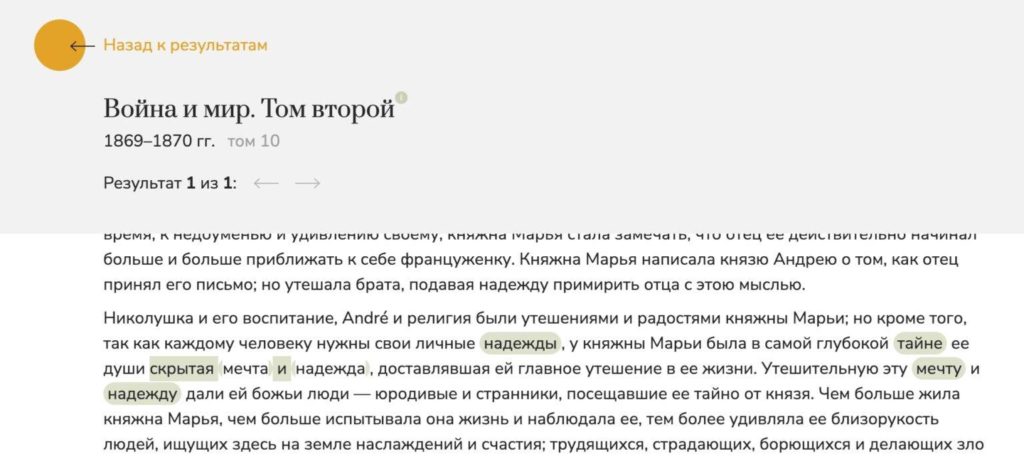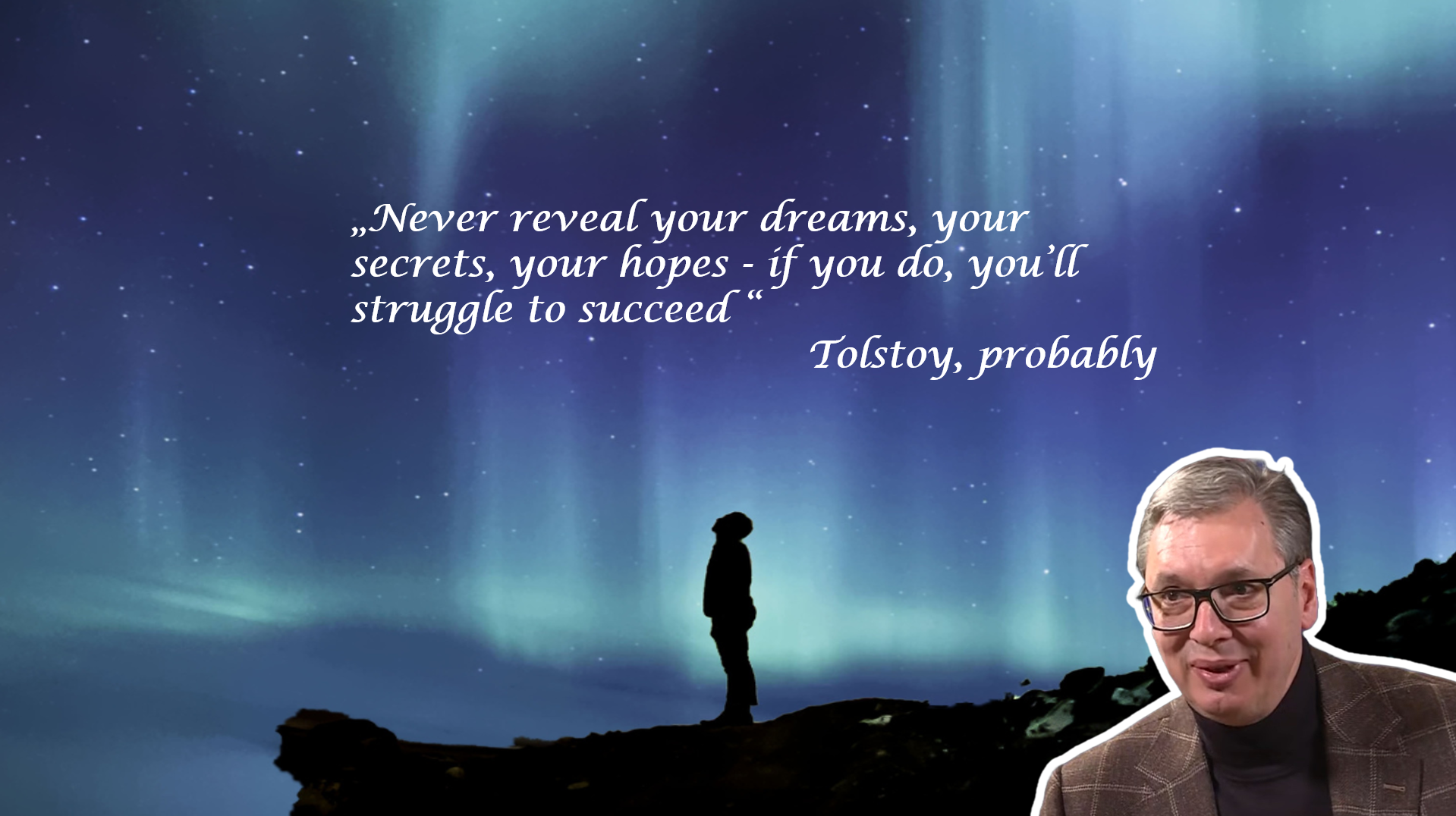Original article (in Serbian) was published on 23/5/2025; Author: Stefan Janjić
The President of Serbia became enraged over the decision of the Court of Appeals in Novi Sad to place activists Marija Vasic, Lazar Dinic, and Lado Jovovic under house arrest. The following day, Vucic appeared on TV Pink speaking in a calmer tone, and – as an introduction to his remarks on anger and justice – he quoted Tolstoy. It turned out, however, that the cited quote does not exist in the archive of the Russian writer’s works.
“Great Lev Nikolayevich Tolstoy, besides being a great writer, a grand writer, was also a great philosopher. His philosophical thoughts, especially within the context of Orthodox philosophy, are incredibly important, but he said, among other things, one beautiful sentence, which I’ll paraphrase… Never reveal your dreams, your secrets, your hopes – if you do, you’ll struggle to succeed. I am nowhere near the strength and intellect of the great Tolstoy; I am just an ordinary man, who has emotions, and who always keeps in mind the position he holds”.
If you try to find this “thought” online, you’ll see it appears only as part of Vucic’s paraphrase (RTS, Informer, Balkanist, Russia Today, Sputnjik…) meaning that it has never been attributed to Tolstoy prior to Vucic’s interview on Pink.
Tolstoy’s works archive
The online platform slovotolstogo.ru contains a searchable archive of Tolstoy’s works, which includes not only his well-known novels but also his philosophical and educational writings, works for children, poetry, diary entries and notebooks, letters, and drafts. What’s especially useful is that the given word is automatically searched in all grammatical forms.

Since the President of Serbia emphasized that it was a paraphrase, we did not perform a fixed search but instead separately reviewed hundreds of results for the words dream (мечта), secret (тайна), and hope (надежда). The only place where these three words appeared in some kind of close connection was in the second volume of War and Peace. Below is the translation by Milovan and Stanka Glisin (Prosveta, 1986), with the original Russian phrases given in parentheses.
Nikoluska and his upbringing, André and religion, were comforts and joys for Princess Maria; but since every person needs personal hopes (рус. личные надежды), Princess Maria also had, in the deepest secrecy (рус. глубокой тайне) of her soul, a hidden dream and hope (рус. скрытая мечта и надежда) that was her main consolation in life. This comforting dream and hope were given to her by godly people – holy fools and wanderers, who secretly visited her.
As we can see, this passage describes the inner world of Princess Maria and does not offer any advice; furthermore, the context of the paragraph has no connection to Orthodox philosophical thought. Searches in Russian and English, as well as focusing on other parts of the paraphrase (“Never reveal…”, “…you will struggle to succeed”), yielded no results.
Verifying the authenticity of the quote
When verifying the truth of certain claims, the process of finding proof that something happened (that something was said or done) is much easier than searching for proof that something did not happen. In the first case, your search is focused on one specific trace: once you find it, the process is complete. In the second case, your search must cover a much broader area, the full extent of which you often cannot even guess.
What does all this mean in practical terms? Tolstoy wrote millions of words in his lifetime, and it is extremely difficult to prove that he did not say something, especially when the starting point is a paraphrase, and in another language, in this case, Serbian. However, the fact that the alleged wisdom is missing from the most comprehensive searchable archive of Tolstoy’s works leaves room for the following hypothesis: although Vucic modestly claims he is not even close to the strength and intellect of the great Tolstoy, perhaps he mustered enough courage to attribute his thoughts to him. If any reader has proof that refutes this hypothesis, we will gladly publish it.



